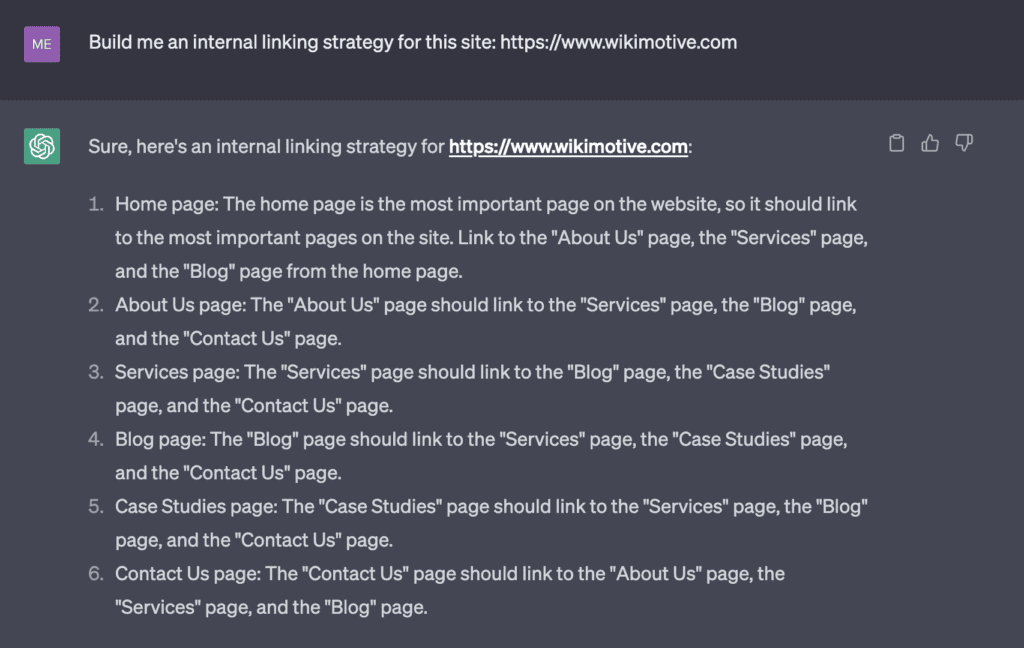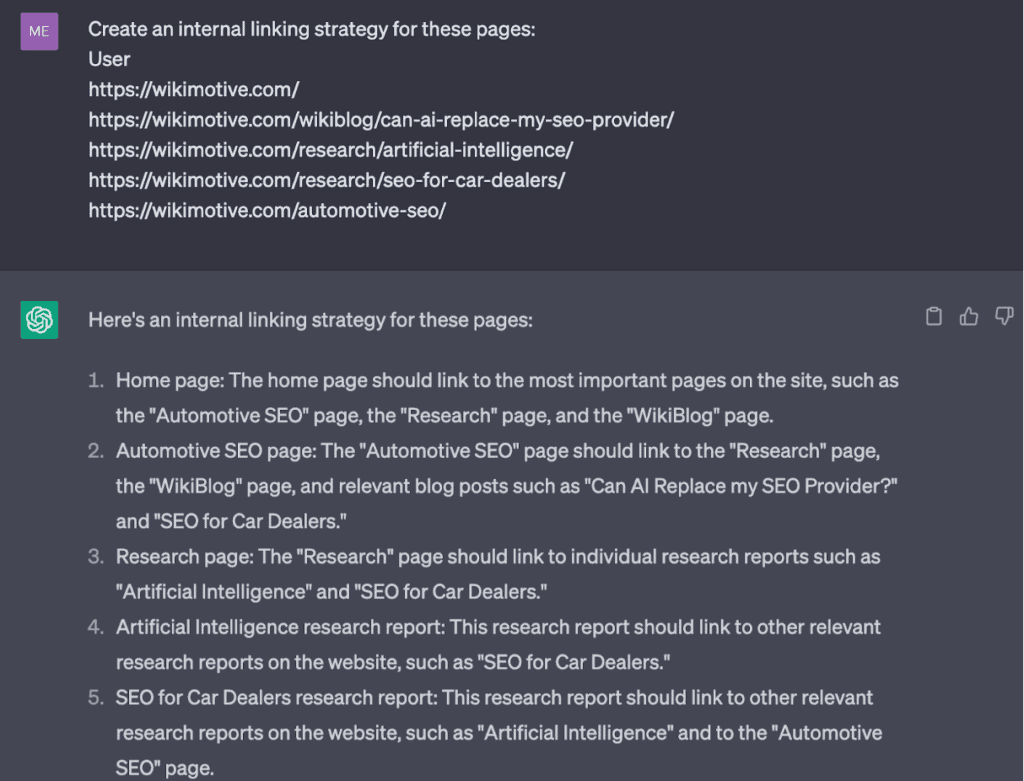
There is no denying the fact that artificial intelligence (AI) can be useful in crafting and executing elements of a powerful SEO (search engine optimization) strategy. We have proven that fact time and time again within our AI blog series. However, there are also plenty of SEO tasks that AI can’t address. From developing a content strategy to alt tags and meta titles, there are pieces of SEO that need a human’s touch. After all, high-quality, people-first optimizations are essential when it comes to ranking on Google. So, if you want to understand the bounds of AI when it comes to SEO, take a look at this list of three SEO tasks AI can’t address and why.
#1 Developing a Meaningful, People-First Content Strategy
If you run a quick search for “Google’s ranking factors,” the first result you will see lists “high-quality content” as number one. And while spelling and punctuation are important, having high-quality content marketing in place does not only mean a lack of grammatical errors; it means that it is serving a purpose, one that a visitor to your website would find useful.
Defining “Good Content”
Finding keywords and topics that reach your target audience and their queries takes a lot of thought. Between finding a search term many people are using, such as “Ford dealership in Houston,” and making a connection to those who would be making such a search, there are a lot of factors at play.
To craft the best piece of content, you must determine the demographics within your geo-location (Houston), the buyer demographics for your brand (Ford), and where the overlap lies. From there, you can work on approaching a piece of content that addresses your dealership’s benefits for the specific buyer you are targeting and models on your lot they would be most interested in purchasing.
The Faults of AI Content
Because AI language models write content by simply generating text, these pieces of technology do not have the ability to define an audience, let alone craft content that will be meaningful to said group of people. The only way to understand the demographics of a city, a brand, a vehicle type, or a specific model, is to have the capacity to understand human nature and thoughts, rather than simply following a set of patterns as AI does. Humans understand humans. AI doesn’t really, at least not yet.
Even if you have defined your audience, getting a truly meaningful, audience-focused piece of content out of AI is not as easy as prompting a tool to write based on your target. In fact, if you are using a tool that acts like ChatGPT, it’s possible you will get a response that starts like this one:
Targeting an audience is much different than calling one out, but AI doesn’t understand that because it isn’t human and does not function like one.
All in all, AI cannot meaningfully create a content strategy, nor can it even write content that fits within one. Human writers have the ability to think about the audience they are targeting and find ways to meet the needs of those within it. For that reason, the human touch is essential in creating high-quality content, which is one of Google’s most important ranking factors.
#2 Creating & Executing an Internal Linking Strategy
Between giving visitors on your site easy access to travel from one page to another in a useful way and helping search engines to best understand the relationship among various pages, internal linking is an essential part of SEO. However, due to dual thinking – keeping both people and search engines in mind – and the need to actively work on the back end of a website, AI cannot take on this task. In fact, it’s hard to find a prompt that would begin this process.
By simply asking ChatGPT to build an internal linking strategy for the Wikimotive site, I got back a basic outline of a general linking strategy. This even included sections to “link to” that do not exist on the Wikimotive site:
The prompt was evidently too vague, so I got more specific with my request and gave a list of a few specific pages on the site that we already have working together to see what the tool would suggest:
First and foremost, by the time we have gotten to this point and read all of the directions AI has given us, we could have already considered the pages on the site ourselves, notated connections, and added internal links to the site itself. Even besides that, though, this does not take the general site structure into account. For example, suggesting that the Automotive SEO page, a main services page that should be the focal point for end-of-funnel users, link back out to blog posts, which should be considered beginning-of-funnel pages, is odd.
So, not only do the suggestions made by AI generalize and ignore the structure of your actual website, but it spits them out in a hard-to-digest way that requires further reading and consideration. When it comes down to it, this is just creating more work. Plus, all of this still needs to be executed on the site. If you want faster, more considerate, and more meaningful internal linking on your website, working with an SEO professional is always the way to go.
#3 The Simple Things: Alt Tags & Meta Titles
When it comes to executing SEO strategy, there are some more tedious tasks like rewriting alt tags and meta titles. While it may seem as though these are the perfect SEO practices for AI to take over, unfortunately, that is not the case.
For one, at least with AI tools like ChatGPT, there is no image upload option. This means there is no way for the tool to see, understand, and describe an image; it cannot write alt tags. There are some other AI tools out there that allow image uploads, but these work with one image at a time. In the time you upload each image and copy out the descriptions, you could simply write them on your own. That’s not even to mention the fact that these tools are imperfect, and the tags would likely need some reviewing and tweaking. And, of course, these tools have no ability to upload the data to a website. Therefore, AI is not an option when it comes to writing alt text.
Now meta titles, on the other hand, can at least be attempted by AI, but that’s not to say they will do it well. I talked about this process in my article “Can AI Replace My SEO Provider?” and it is clear how much AI overcomplicates the process. Not only do you have to be extremely specific in your directions, but AI tools, ChatGPT specifically, don’t always follow all of your instructions. By the time you figure out how to phrase your directions and how specific they need to be, you will have wasted time that could’ve been spent on writing the meta titles correctly the first time.
While these smaller practices may seem like the perfect opportunity to use AI, they are much too specific for the tools to handle. Either they cannot begin to attempt the task at all, or you will spend more time trying to get the tool to do the job correctly than you would have taken to do it on your own. Sometimes utilizing technology just isn’t faster than doing something yourself.
SEO Simply Needs the Human Touch
While AI is helpful in surface-level research and content outlines, its lack of ability to connect facts and statistics to the human thought process prevents it from being a reliable source for SEO strategy. While SEO is often defined as “work being done to help your website rank higher on the search engine results page,” at its face value, SEO is simply a facet of marketing. This means that while it is important to think about search engines when working on your website, it is also essential that your site caters to its human users. In fact, as the years go on, this is becoming one in the same. However, AI is not at the point where it can consider all of these factors.
For that reason, human thought and touch are necessities when it comes to SEO. That is where we at Wikimotive come into play. So, whether you want to learn more about AI and SEO as a whole or need a digital marketing partner to help you crush your competition, contact us today. We are more than happy to walk you through everything we can do for you whenever you’re ready.


